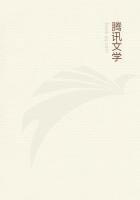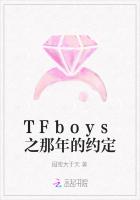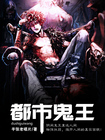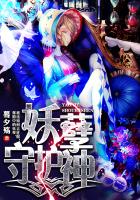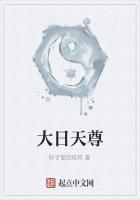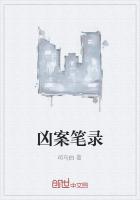This is the story of an education, and the person or persons who figure in it are supposed to have values only as educators or educated. The surroundings concern it only so far as they affect education. Sumner, Dana, Palfrey, had values of their own, like Hume, Pope, and Wordsworth, which any one may study in their works; here all appear only as influences on the mind of a boy very nearly the average of most boys in physical and mental stature.
The influence was wholly political and literary. His father made no effort to force his mind, but left him free play, and this was perhaps best. Only in one way his father rendered him a great service by trying to teach him French and giving him some idea of a French accent. Otherwise the family was rather an atmosphere than an influence. The boy had a large and overpowering set of brothers and sisters, who were modes or replicas of the same type, getting the same education, struggling with the same problems, and solving the question, or leaving it unsolved much in the same way. They knew no more than he what they wanted or what to do for it, but all were conscious that they would like to control power in some form; and the same thing could be said of an ant or an elephant. Their form was tied to politics or literature. They amounted to one individual with half-a-dozen sides or facets; their temperaments reacted on each other and made each child more like the other. This was also education, but in the type, and the Boston or New England type was well enough known. What no one knew was whether the individual who thought himself a representative of this type, was fit to deal with life.
As far as outward bearing went, such a family of turbulent children, given free rein by their parents, or indifferent to check, should have come to more or less grief. Certainly no one was strong enough to control them, least of all their mother, the queen-bee of the hive, on whom nine-tenths of the burden fell, on whose strength they all depended, but whose children were much too self-willed and self-confident to take guidance from her, or from any one else, unless in the direction they fancied. Father and mother were about equally helpless. Almost every large family in those days produced at least one black sheep, and if this generation of Adamses escaped, it was as much a matter of surprise to them as to their neighbors.
By some happy chance they grew up to be decent citizens, but Henry Adams, as a brand escaped from the burning, always looked back with astonishment at their luck. The fact seemed to prove that they were born, like birds, with a certain innate balance. Home influences alone never saved the New England boy from ruin, though sometimes they may have helped to ruin him; and the influences outside of home were negative. If school helped, it was only by reaction. The dislike of school was so strong as to be a positive gain. The passionate hatred of school methods was almost a method in itself.
Yet the day-school of that time was respectable, and the boy had nothing to complain of. In fact, he never complained. He hated it because he was here with a crowd of other boys and compelled to learn by memory a quantity of things that did not amuse him. His memory was slow, and the effort painful.
For him to conceive that his memory could compete for school prizes with machines of two or three times its power, was to prove himself wanting not only in memory, but flagrantly in mind. He thought his mind a good enough machine, if it were given time to act, but it acted wrong if hurried.
Schoolmasters never gave time.
In any and all its forms, the boy detested school, and the prejudice became deeper with years. He always reckoned his school-days, from ten to sixteen years old, as time thrown away. Perhaps his needs turned out to be exceptional, but his existence was exceptional. Between 1850 and 1900 nearly every one's existence was exceptional. For success in the life imposed on him he needed, as afterwards appeared, the facile use of only four tools: Mathematics, French, German, and Spanish. With these, he could master in very short time any special branch of inquiry, and feel at home in any society. Latin and Greek, he could, with the help of the modern languages, learn more completely by the intelligent work of six weeks than in the six years he spent on them at school. These four tools were necessary to his success in life, but he never controlled any one of them.
Thus, at the outset, he was condemned to failure more or less complete in the life awaiting him, but not more so than his companions. Indeed, had his father kept the boy at home, and given him half an hour's direction every day, he would have done more for him than school ever could do for them. Of course, school-taught men and boys looked down on home-bred boys, and rather prided themselves on their own ignorance, but the man of sixty can generally see what he needed in life, and in Henry Adams's opinion it was not school.
Most school experience was bad. Boy associations at fifteen were worse than none. Boston at that time offered few healthy resources for boys or men. The bar-room and billiard-room were more familiar than parents knew.
As a rule boys could skate and swim and were sent to dancing-school; they played a rudimentary game of baseball, football, and hockey; a few could sail a boat; still fewer had been out with a gun to shoot yellow-legs or a stray wild duck; one or two may have learned something of natural history if they came from the neighborhood of Concord; none could ride across country, or knew what shooting with dogs meant. Sport as a pursuit was unknown.
Boat-racing came after 1850. For horse-racing, only the trotting-course existed. Of all pleasures, winter sleighing was still the gayest and most popular. From none of these amusements could the boy learn anything likely to be of use to him in the world. Books remained as in the eighteenth century, the source of life, and as they came out -- Thackeray, Dickens, Bulwer, Tennyson, Macaulay, Carlyle, and the rest -- they were devoured; but as far as happiness went, the happiest hours of the boy's education were passed in summer lying on a musty heap of Congressional Documents in the old farmhouse at Quincy, reading "Quentin Durward," "Ivanhoe," and " The Talisman," and raiding the garden at intervals for peaches and pears. On the whole he learned most then.



